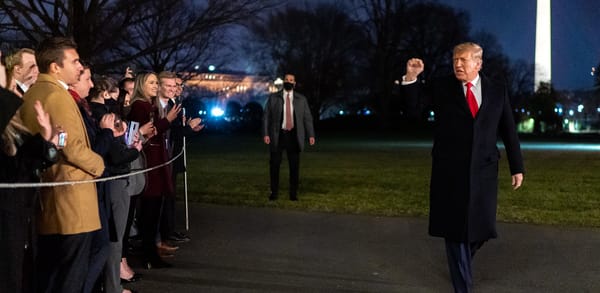Trump wants China’s help in making peace in Ukraine. He’s unlikely to get it
Donald Trump’s invitation to Xi Jinping for his inauguration aims to involve China in Ukraine peace talks, but Beijing’s interests likely align with prolonging the conflict, favouring its geopolitical dominance.

Highlights from this story
● Donald Trump has invited Xi Jinping to his inauguration, linking China to ceasefire negotiations after meeting Zelensky.
● China maintains economic ties with Russia, avoids direct criticism, and favours proposals benefiting Moscow.
● Kyiv rejects compromises perceived as pro-Russian, doubting China’s neutrality in peace negotiations.
● A drawn-out war weakens the West, strengthens China’s global position, and maintains Russia’s dependency.
U S President-Elect Donald Trump has invited China’s President Xi Jinping to his inauguration on January 20 in a surprise move which appears to be part of a plan to involve Beijing in ceasefire negotiations in Ukraine.
Just after his recent meeting with Ukrainian president Volodymyr Zelensky in Paris, Trump posted, “There should be an immediate ceasefire and negotiations should begin,” and “China can help.” That latter remark has suddenly gained more significance after Trump extended the unusual invitation for the foreign leader to attend the January 20 ceremony.
Leaving aside whether Xi will accept Trump’s invitation to Washington DC (he probably won’t), the more important question is whether he would indeed help Trump end the Russian war against Ukraine.
China has had a strong economic and trading relationship with Russia throughout the war and has refrained from criticising Putin. While it has denied providing Moscow with military assistance, reports suggest that China has allowed some goods that have battlefield use to be sent to Russia.
On the surface, Trump’s initiative and what China has most recently put on the table with Brazil look like two reasonably well-aligned peace proposals.
Both call for a ceasefire along the current frontlines, followed by negotiations on a permanent settlement. Both seem to accept Russia’s demand to freeze the territorial status quo, which would mean Ukraine would lose the near-20% of its territory that Moscow’s forces have illegally occupied since 2014.
Kyiv and Beijing
Ukraine and most of its Western partners continue to reject this as unacceptable. Before Trump’s election victory, this was a sustainable position because the West was able to prevent Ukraine from being militarily defeated on the battlefield.
This position may be slowly changing, but it is not clear that it would suddenly make China a welcome partner for the West in any peace negotiations – least of all for Ukraine.
Kyiv has always been wary of China and its international policies, from the economic and trade Belt and Road Initiative to the recent peace proposal. Zelensky called the China-Brazil peace initiative “destructive”. He also accused China and Brazil of being “pro-Russian”.
Zelensky is personally deeply invested in his own peace plan, particularly as Ukrainians have made enormous sacrifices in the war so far. This does not rule out compromises, but it makes concessions to China, widely seen by Ukrainians as one of Russia’s main supporters in the war, very unlikely.
Trump has invited Xi Jingping to his inauguration.
Even if there was a sudden change of heart in Kyiv, it is highly doubtful that a Trump-brokered deal would serve Beijing’s interests. For Xi, it is always about strengthening China’s role and influence as a global power. China will be concerned if the war is over; the US may become even more focused on its trade war with Beijing.
So far, the war in Ukraine has allowed China to benefit from the strain that it has put on the West.
US suggestions that it will pull back on its alliance commitments in Europe have raised doubts over the dependability of the US as an ally for Ukraine. This is becoming more acute as Trump prepares to move into the White House.
The longer the war in Ukraine continues in this way, the longer China will reap the benefits from the reduction of the relative weight of the United States as its main geopolitical and geo-economic rival.
A carefully managed continuation of the war against Ukraine, by contrast, benefits China in asserting its global leadership.
China’s approach to managing the “Ukraine crisis” was reiterated by Xi at the recent BRICS summit in Kazan, Russia, and in a meeting with former Russian president Dmitry Medvedev in Beijing on December 12 2024. It is focused on upholding “three key principles: no expansion of the battlefields, no escalation of hostilities, and no fanning flames, and [striving] for swift de-escalation of the situation”.
What’s in it for China?
This is a far cry from an end to the war as envisaged by Trump. A Trump-brokered deal would likely lift sanctions and provide a possibility of renewed, more cooperative relations between the West and Russia.
It would significantly strengthen Putin’s position, contribute to Russia’s international rehabilitation, reduce his country’s dependence on China, and potentially rekindle historical Russia-China rivalries. Trump’s claim that he wants to “un-unite” Russia and China will not have gone unnoticed in Beijing.
And even if Trump did not manage to drive a wedge between Russia and China, a stronger Kremlin would mean a shift of the power dynamic in the partnership between Moscow and Beijing, potentially elevating Putin from a junior partner to Xi’s peer.
From a Chinese perspective, helping Trump to broker a deal between Russia and Ukraine offers few incentives, except potentially toning down the US trade and tariffs war against it. Draining the West’s resources in defending Ukraine keeps it away from the Indo-Pacific region, in which most of the competition between China and the US will play out.
Xi has no interest in seeing Putin being strategically defeated in Ukraine, but keeping Russia bogged down in its war against Ukraine will ensure that the partnership between Beijing and Moscow will stay on current terms with the balance of power tilted towards China.
Keeping the war in Ukraine going, rather than helping Trump to end it, therefore, is the most likely choice that Beijing will make.

Sources:
▪ This piece was originally published in The Conversation and re-published in PUBLIC SQUARE UK on 15 December 2024. | The author writes in a personal capacity.
▪ Cover: Flickr/Trump White House Archive. (Licensed under a Creative Commons Attribution-ShareAlike 4.0 International License.)









[Read our Comments Guidelines]